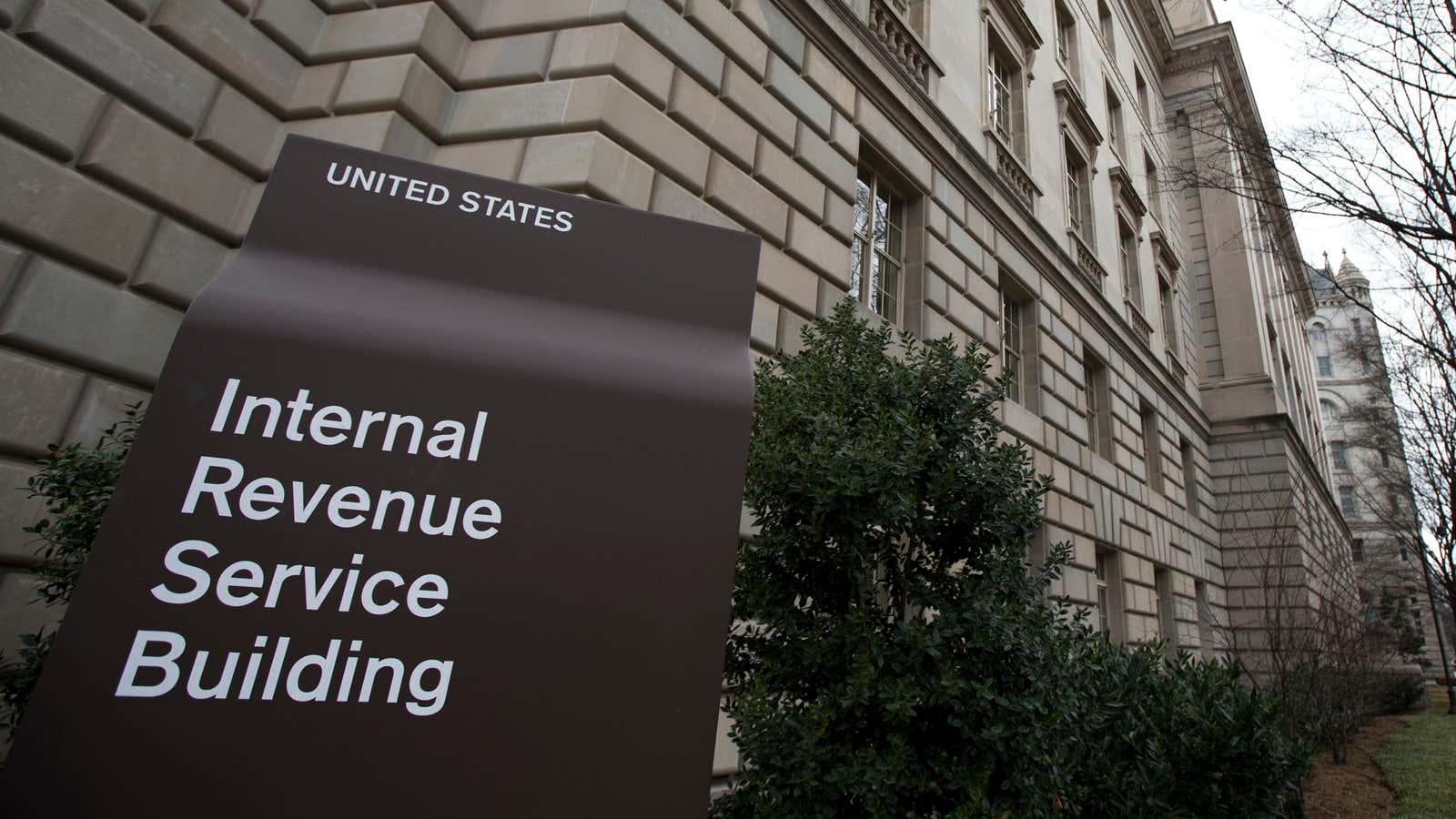If you’re an American who bought bitcoins at around $80 less than a month ago and sold them today for around $237, congratulations! You may be on your way to accidentally committing tax fraud. That’s because you’ll run afoul of authorities if you don’t report what you made on bitcoin as capital gains, the same way you report gains made on most assets sold at a profit, argues Karl Denninger, who is sometimes credited as one of the founders of the Tea Party movement.
Since there isn’t a field in TurboTax for “bitcoin earnings,” many fans of the cryptocurrency are likely ignorant of this wrinkle in the tax code of the United States and many other countries. Meanwhile, newly minted bitcoin millionaires are revealing themselves—or at least their Reddit handles—left and right.
Even those who are staying quiet about their newfound riches are liable, basically forever, for whatever capital gains they fail to declare and pay taxes on come tax season. That’s because bitcoin, far from being an “untraceable” currency, relies for its very existence on a global record of every transaction ever conducted with a bitcoin. Using the right forensic tools, tax authorities could plausibly figure out exactly where every one of your bitcoins came from and where it went. And, as Denninger notes, because there’s no statute of limitations on tax avoidance, people who are cashing out now could be prosecuted for not paying capital gains taxes at any point in the future.
Well, I’ll just use a throw-away wallet, some bitcoin users might be saying. Except, gotcha, doing so for the purposes of hiding capital gains or criminal transactions is itself a felony! Denninger:
In all jurisdictions “structuring” transactions to evade money laundering or reporting constraints is a separate and unique crime and usually is a felony. Therefore, the very act of trying to split up transactions or use of “throw-away” wallets in and of itself is likely to be ruled a crime, leaving any party doing that exposed to separate and distinct criminal charges (along with whatever else they can bust you for.)
All of which means that tax lawyers and accountants might be about to score a bitcoin windfall of their own.
